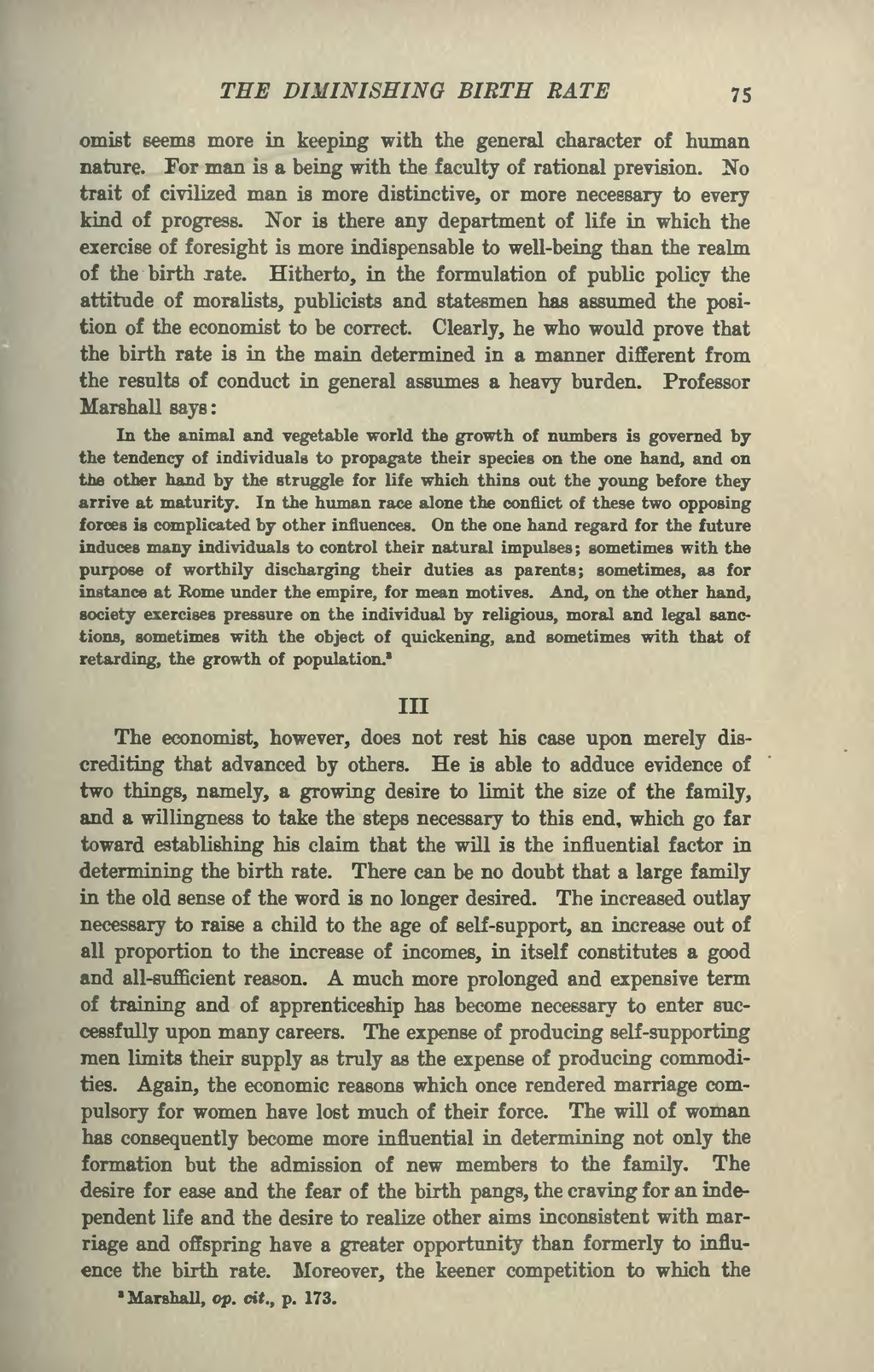omist seems more in keeping with the general character of human nature. For man is a being with the faculty of rational prevision. No trait of civilized man is more distinctive, or more necessary to every kind of progress. Nor is there any department of life in which the exercise of foresight is more indispensable to well-being than the realm of the birth rate. Hitherto, in the formulation of public policy the attitude of moralists, publicists and statesmen has assumed the position of the economist to be correct. Clearly, he who would prove that the birth rate is in the main determined in a manner different from the results of conduct in general assumes a heavy burden. Professor Marshall says:
In the animal and vegetable world the growth of numbers is governed by the tendency of individuals to propagate their species on the one hand, and on the other hand by the struggle for life which thins out the young before they arrive at maturity. In the human race alone the conflict of these two opposing forces is complicated by other influences. On the one hand regard for the future induces many individuals to control their natural impulses; sometimes with the purpose of worthily discharging their duties as parents; sometimes, as for instance at Rome under the empire, for mean motives. And, on the other hand, society exercises pressure on the individual by religious, moral and legal sanctions, sometimes with the object of quickening, and sometimes with that of retarding, the growth of population.[1]
III
The economist, however, does not rest his case upon merely discrediting that advanced by others. He is able to adduce evidence of two things, namely, a growing desire to limit the size of the family, and a willingness to take the steps necessary to this end, which go far toward establishing his claim that the will is the influential factor in determining the birth rate. There can be no doubt that a large family in the old sense of the word is no longer desired. The increased outlay necessary to raise a child to the age of self-support, an increase out of all proportion to the increase of incomes, in itself constitutes a good and all-sufficient reason. A much more prolonged and expensive term of training and of apprenticeship has become necessary to enter successfully upon many careers. The expense of producing self-supporting men limits their supply as truly as the expense of producing commodities. Again, the economic reasons which once rendered marriage compulsory for women have lost much of their force. The will of woman has consequently become more influential in determining not only the formation but the admission of new members to the family. The desire for ease and the fear of the birth pangs, the craving for an independent life and the desire to realize other aims inconsistent with marriage and offspring have a greater opportunity than formerly to influence the birth rate. Moreover, the keener competition to which the
- ↑ Marshall, op. cit., p. 173.
